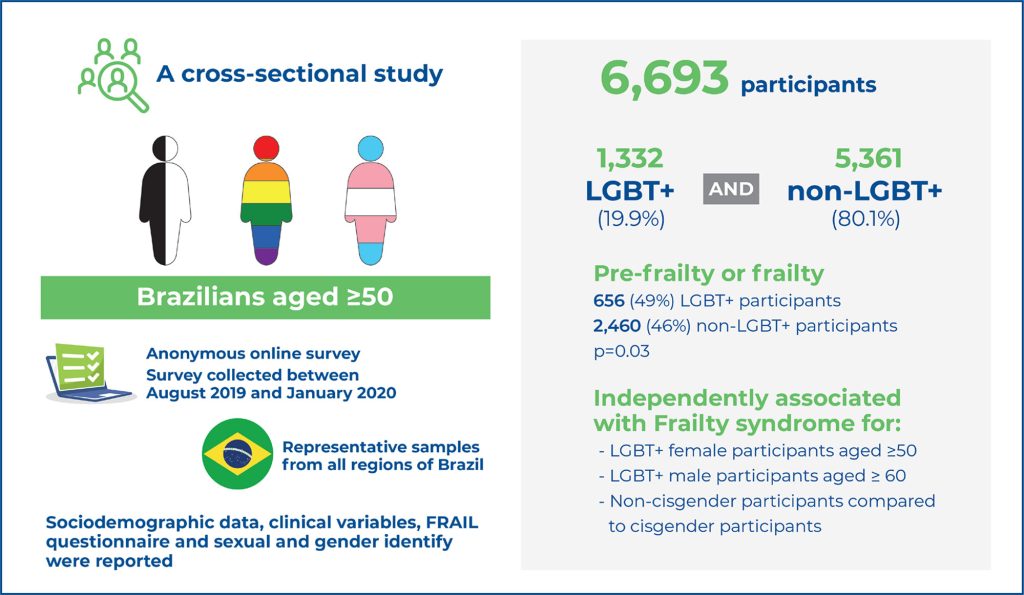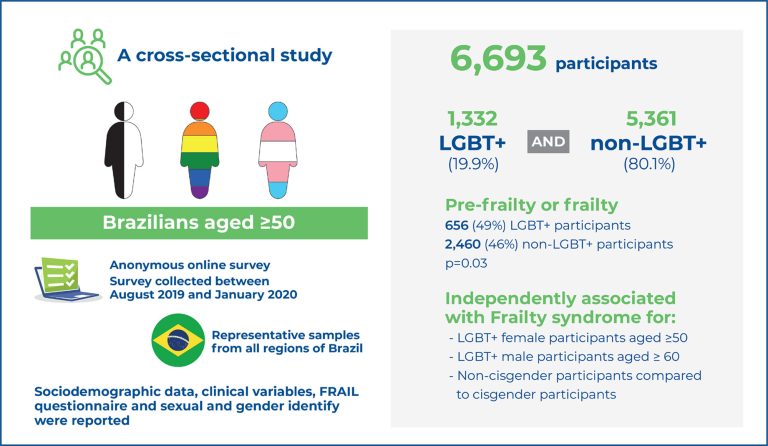einstein (São Paulo). 26/Nov/2024;22:eAO0937.
Frailty over the rainbow: a cross-sectional study of LGBT+ adults aged over 50 years
DOI: 10.31744/einstein_journal/2024AO0937
Highlights
The FRAIL scale is a validated instrument for the diagnosis of frailty syndrome.
LGBT+ people are subject to different stressors throughout their lives, which can affect their health.
Being an LGBT+ man aged ≥60 and an LGBT woman aged ≥50 was independently associated with frailty.
ABSTRACT
Objective:
To investigate differences in the prevalence of frailty between LGBT+ and non- LGBT+ older adults.
Methods:
A cross-sectional study involving Brazilians aged 50 and over was performed. The participants were invited to participate in an anonymous online survey between August 2019 and January 2020. The survey was widely distributed in neighborhood associations, day centers, non-governmental organizations, and social media. Those who identified as homosexual, bisexual, pansexual, non-heterosexual, transgender, travesti, or non-binary were grouped as LGBT+. Participants who were both cisgender and heterosexual were categorized as non-LGBT+. Frailty was measured using the FRAIL scale, and the participants were categorized as robust, prefrail, or frail. Generalized ordered logistic models were used to examine the adjusted association between LGBT+ status and frailty according to age and sex.
Results:
The study sample included 6,693 participants with a median age of 60 years. Overall, 1,332 patients were LGBT+ (19.9%), and 5,361 were non-LGBT+ (80.1%). Pre-frailty or frailty was observed in 656 (49%) LGBT+ participants and 2,460 (46%) non-LGBT+ participants (p=0.03). Multivariate analyses showed that being LGBT+ was independently associated with frailty in female participants aged ≥50 years (OR=1.52, 95%CI=1.08-2.13, p=0.02) and male participants aged ≥60 years (OR=2.83, 95%CI=1.41-5.69, p=0.004). Non-cisgender participants were also more likely to be frail than cisgender participants (OR=2.21, 95%CI=1.42-3.42, p<0.001).
Conclusion:
LGBT+ status was independently associated with frailty in female adults aged >50 years and males aged > 60 years. More research in this area and inclusive government policies are needed to promote the healthy aging of the LGBT+ population.
[…]
270



